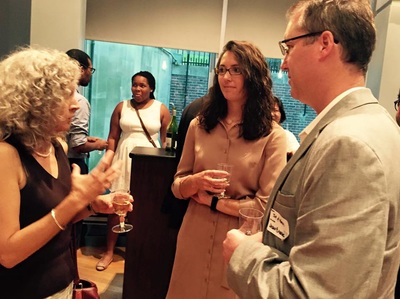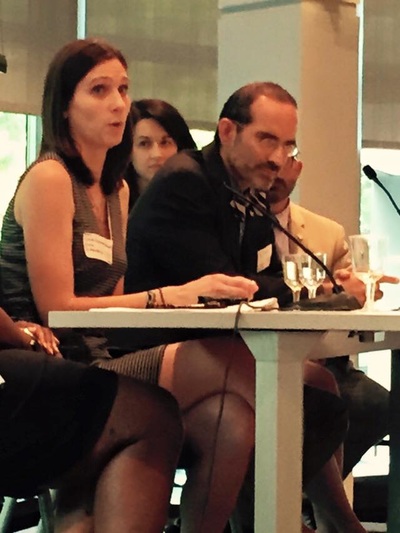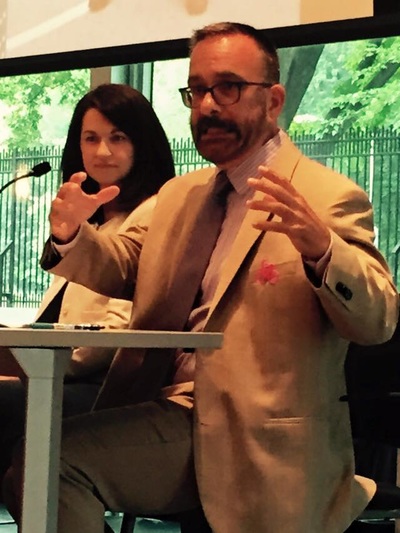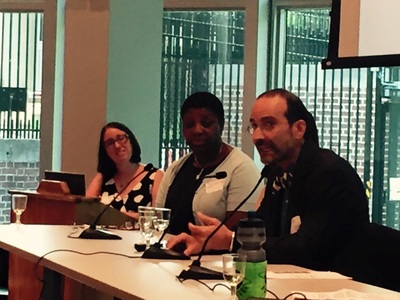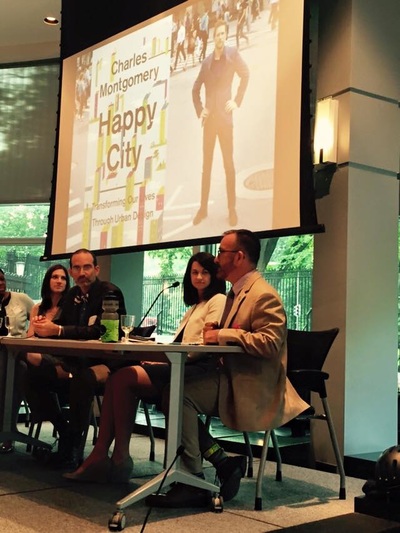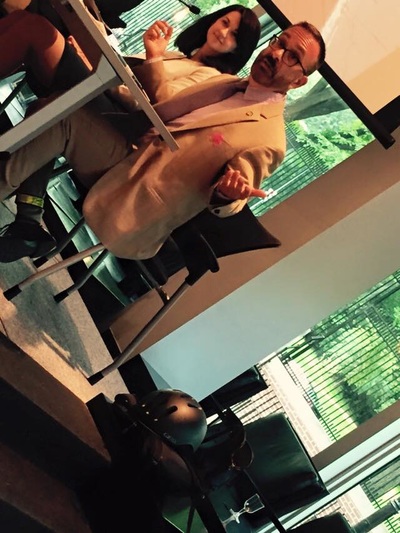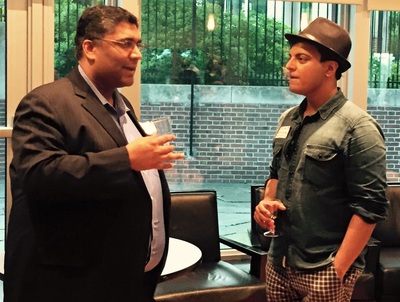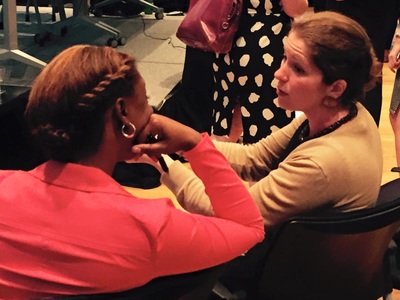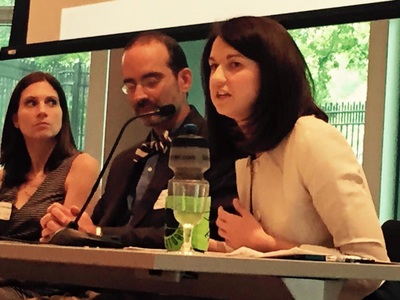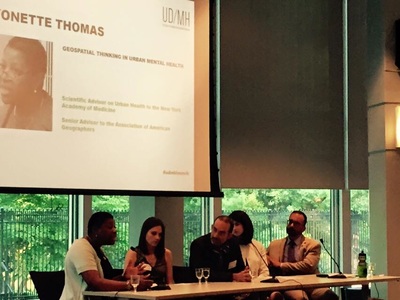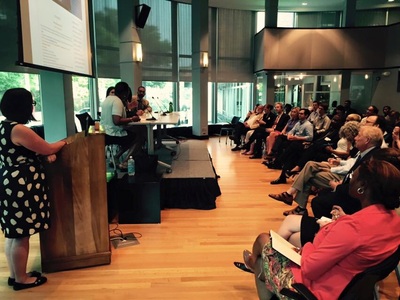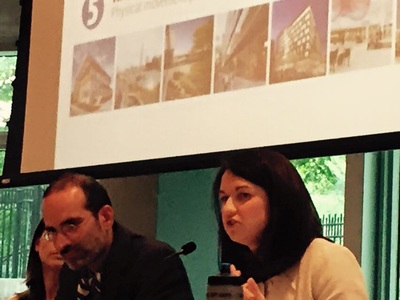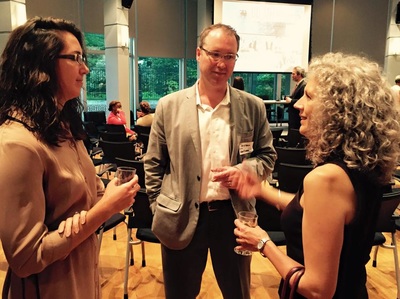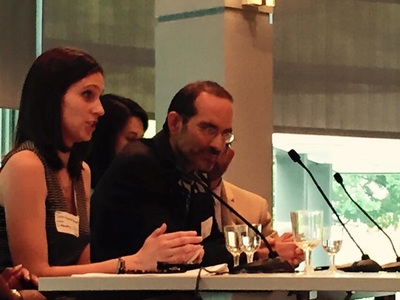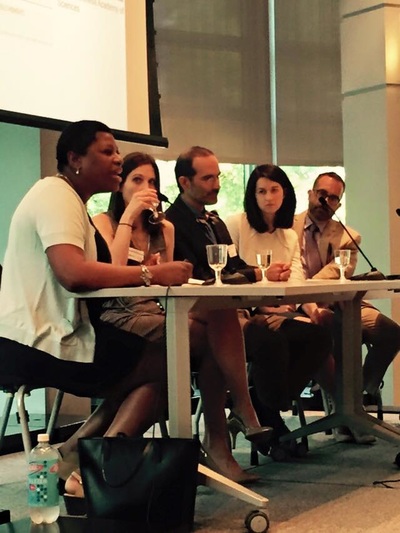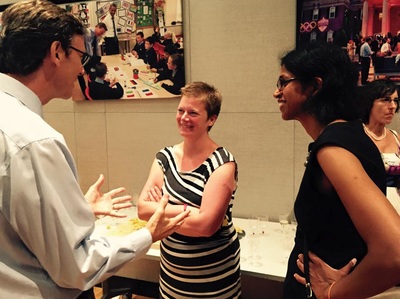UD/MH Launch Event
Washington DC: 7th July 2015 at the British Embassy
WHAT WE TALKED ABOUT AT THE EVENT: A SUMMARY (see below for videos)
Hearing the voice of researchers, designing for social connectedness, park prescriptions, choice and control, and designing streets for people
|
The Centre for Urban Design and Mental Health launched at the British Embassy in Washington DC with five diverse speakers each delivering five-minute presentations on their different perspectives at the nexus of urban design and mental health.
Layla McCay, the Centre's Director, launched proceedings, before introducing Yonette Thomas, social epidemiologist, Scientific Advisor on Urban Health to the New York Academy of Medicine, Senior Advisor to the Association of American Geographers, and author of the book The Geography of Drug Addiction. Yonette placed urban mental health within the wider context of urban health, lamenting that at the recent urban health conference in Dhaka, Bangladesh, the mental health session had to be cut because the only people who wanted to present their research couldn't get funding to attend. She emphasized the need for a greater focus and prioritization of mental health in urban design. Then Sara Hammerschmidt from the Urban Land Institute spoke about her passion for the intersection of public health and planning. She described how land can be better used to support mental health, focusing on indoor lighting quality, walkability, minimizing noise pollution, reducing commuting time, supporting social connectedness, achieving access to nature, and even implementing pet-friendly policies in urban land use. Next, pediatrician Robert Zarr explained how prescribing parks rather than pills can reduce the risk of physical and mental disorders, and he focused on the benefits of physicians literally 'prescribing' specific parks to reduce their patients' symptoms of ADHD. Jamie Huffcut from Gensler architecture and design firm then explained how some of the principles used to design good healthcare facilities can be extrapolated in the city to design healthier environments that support people with mental illnesses; she pinpointed safety, access to nature, choice and control, and walkability as key priorities, and showcased Genseler's new PoppySeed app to map emotional effects of the built environment. Finally Chris Hamilton, recent Arlington Department of Transport commuting Chief, made the case for building streets for people, not cars, and creating walkable, bikeable mixed-use environments. His comment that ""research tells us that long car commutes make us more likely to experience rage, depression and to get divorces" was the most tweeted quote of the evening. Our diverse audience from academia, architecture, interior design, transportation, urban planning, mental health, think tanks, government (local and federal), the World Bank, and a range of academia provided some sparkling discussion. |
SOCIAL MEDIA COVERAGE - Storify |
VIDEO
Layla McCay - Introduction
Sara Hammerschmidt - Land Use
|
Yonette Thomas - Geospatial thinking
Robert Zarr - Prescribing Parks over Pills
|
|
|
|
Jamie Huffcut - Mental Healthcare Design
|
Chris Hamilton - Urban Transport
|
|
|
|
|
Videos by Jason Low, Georgetown University

